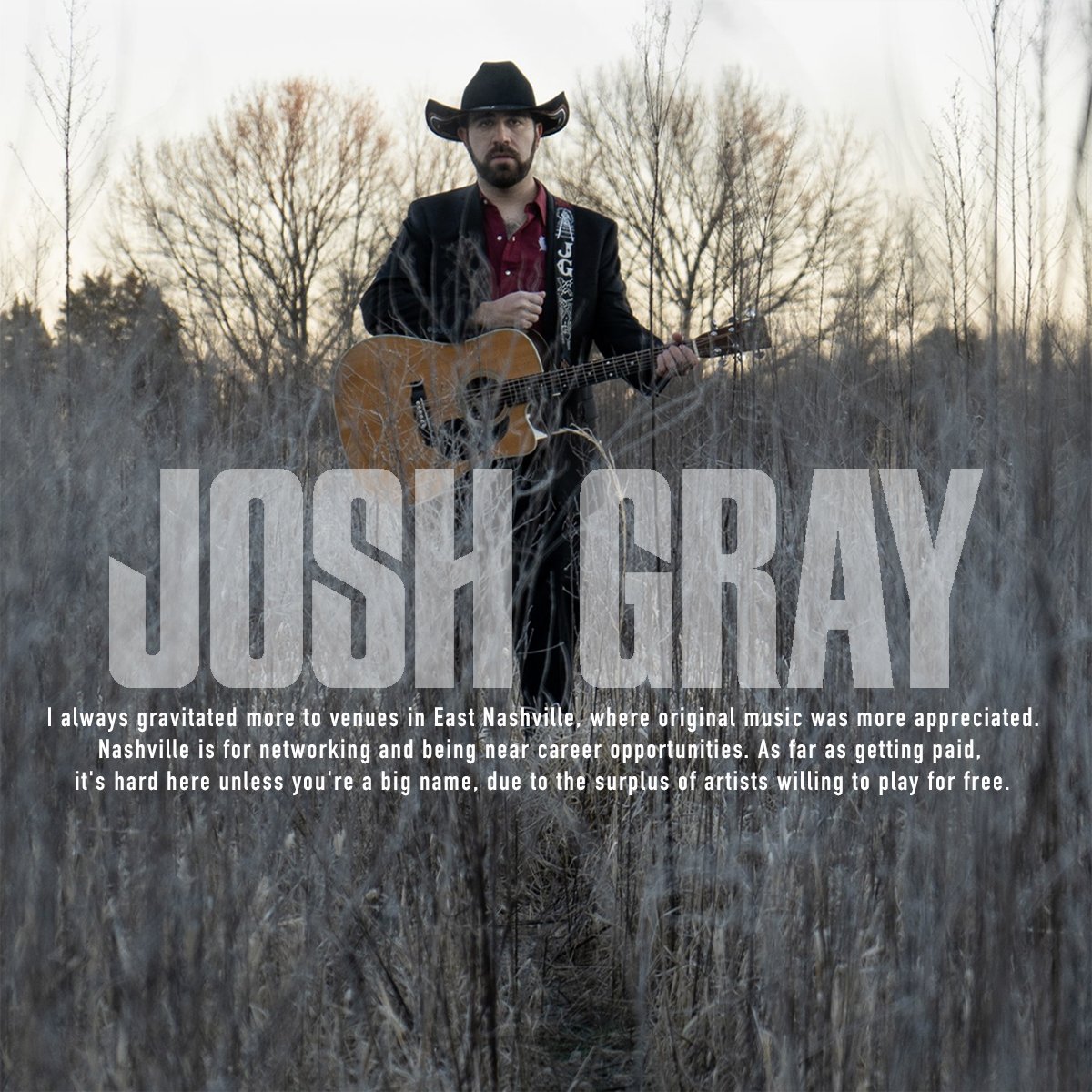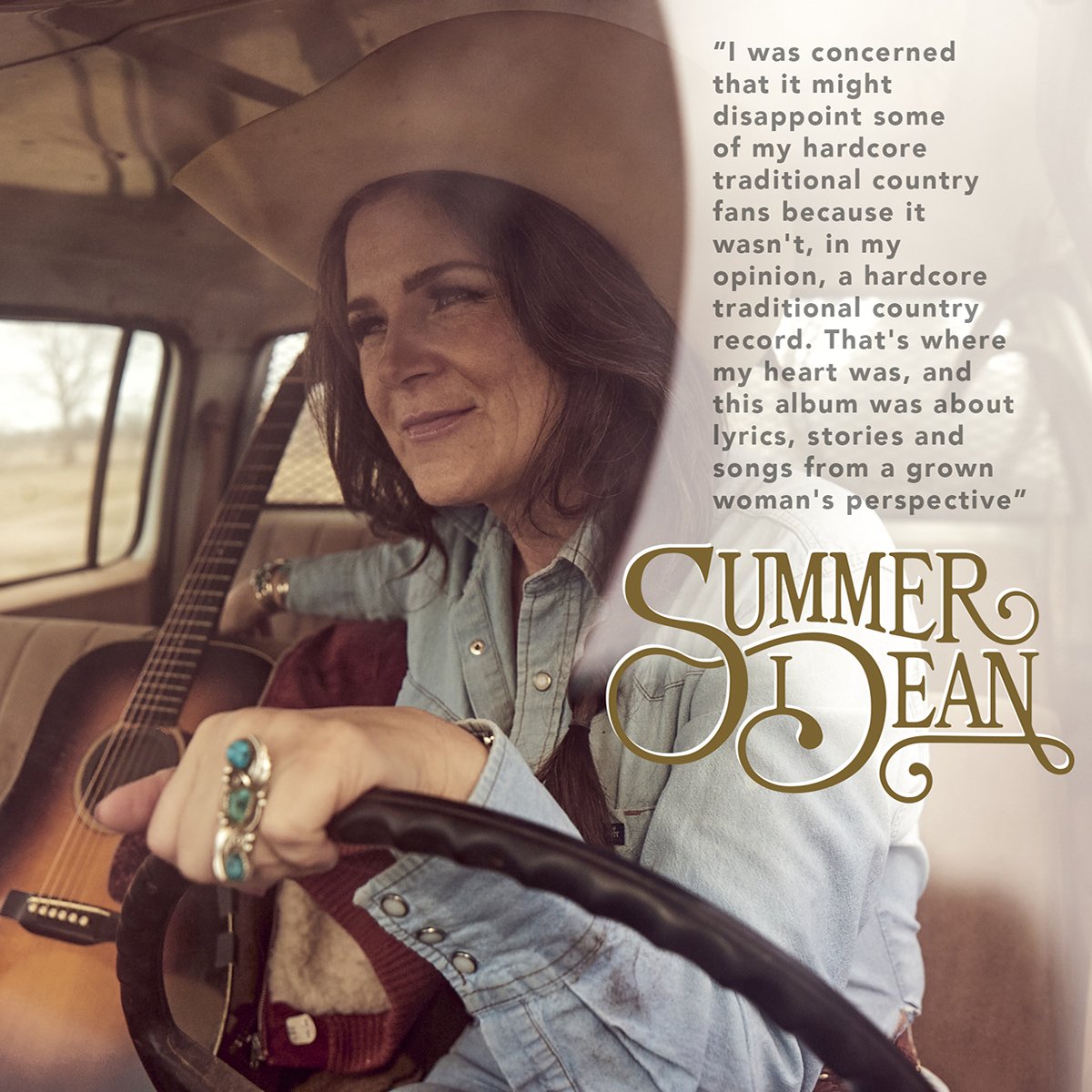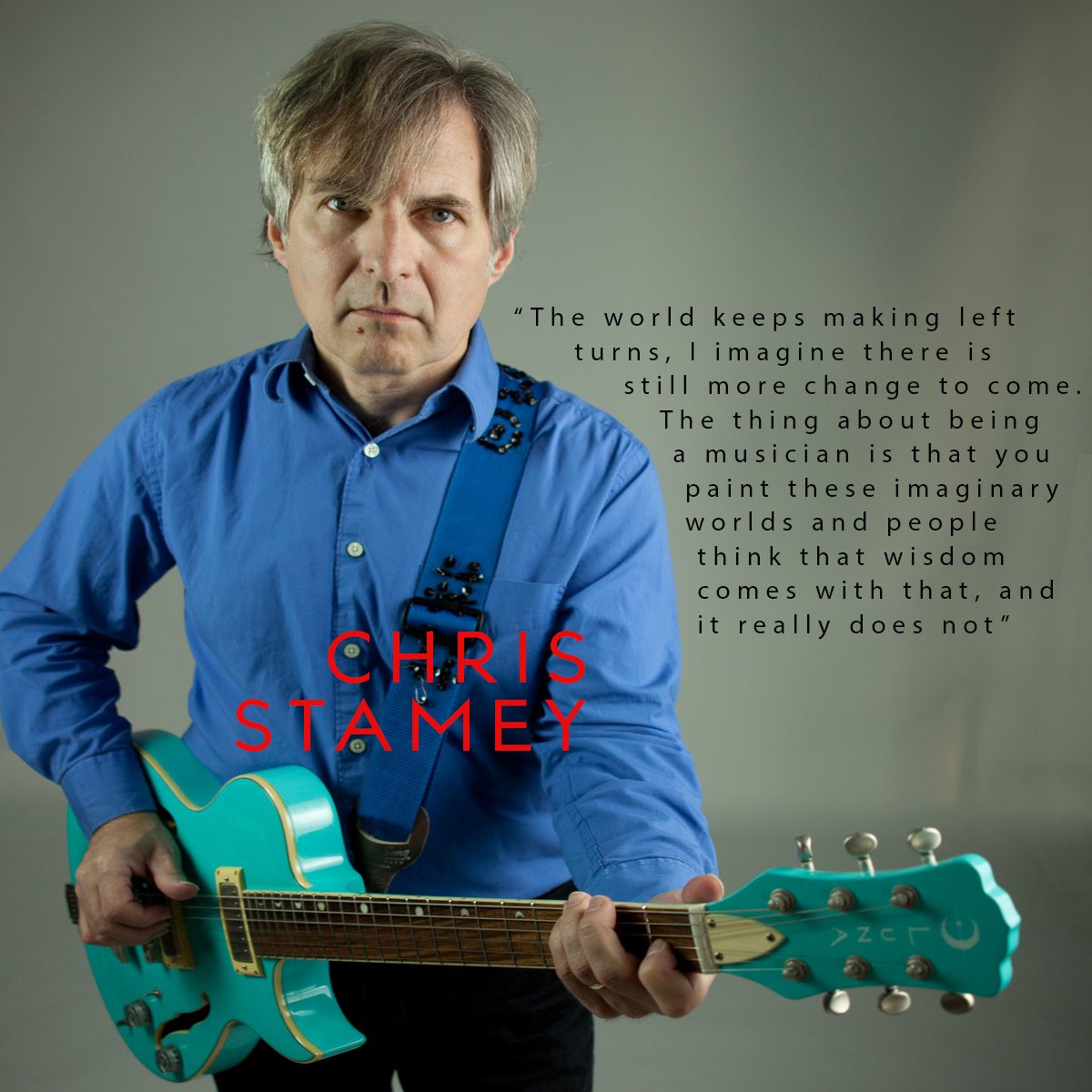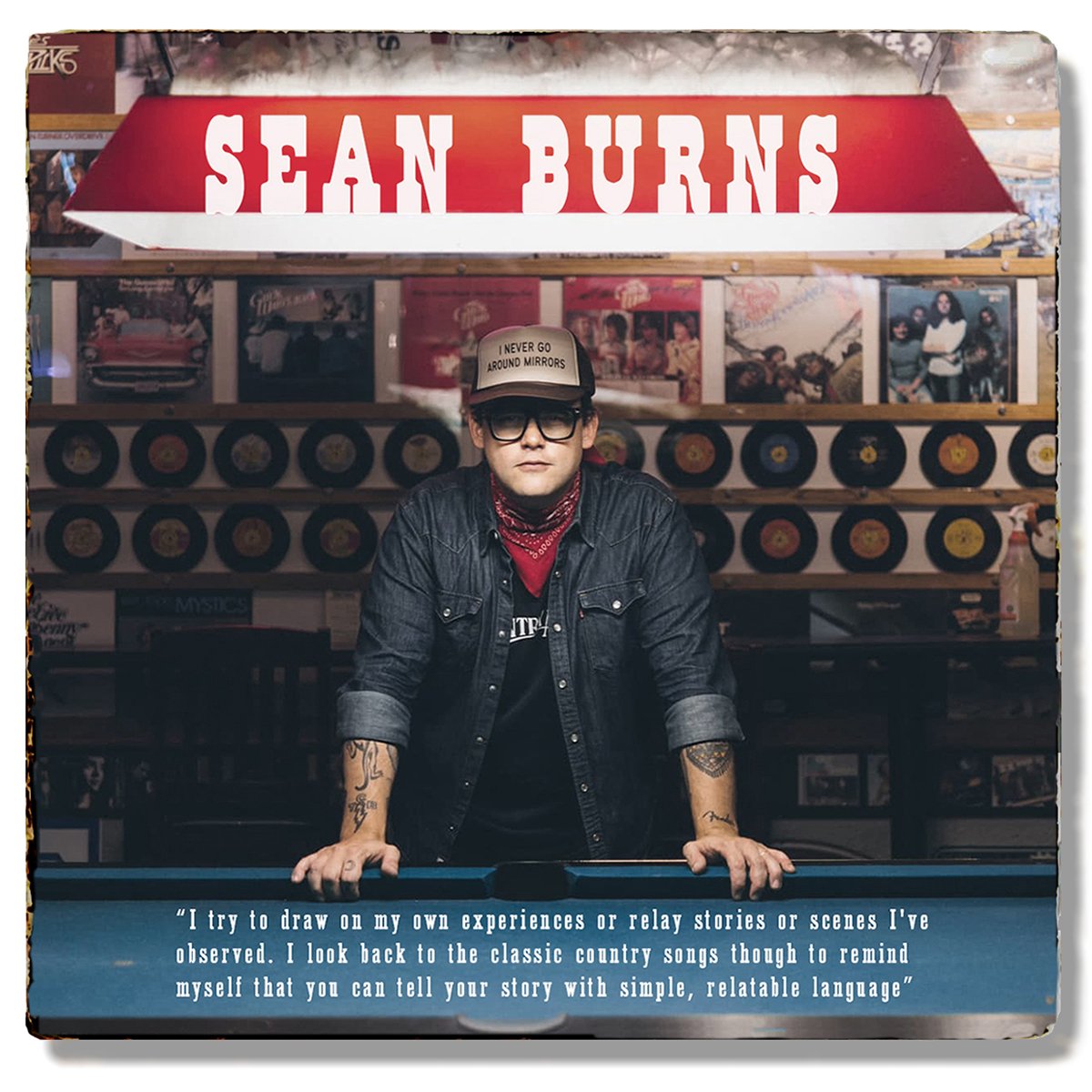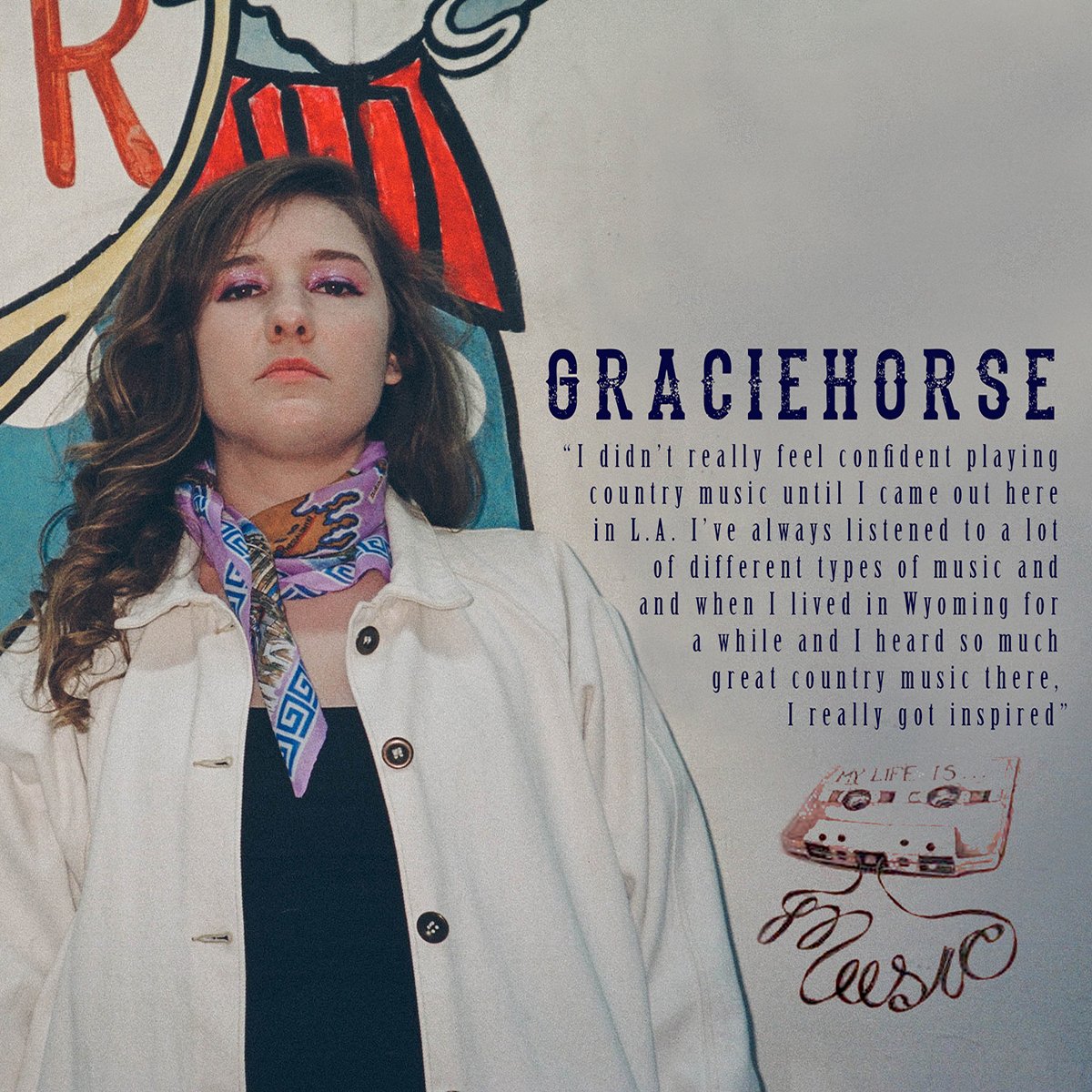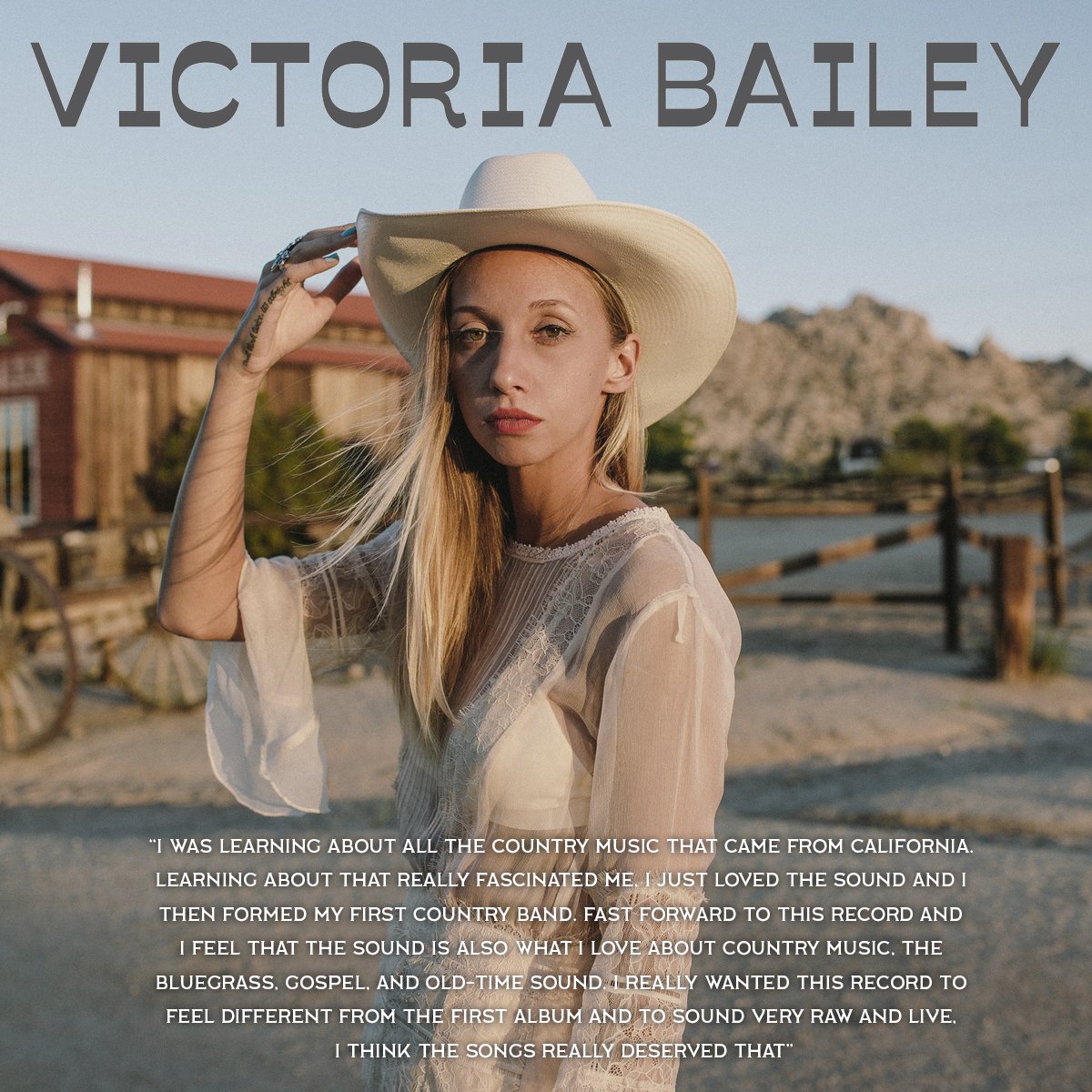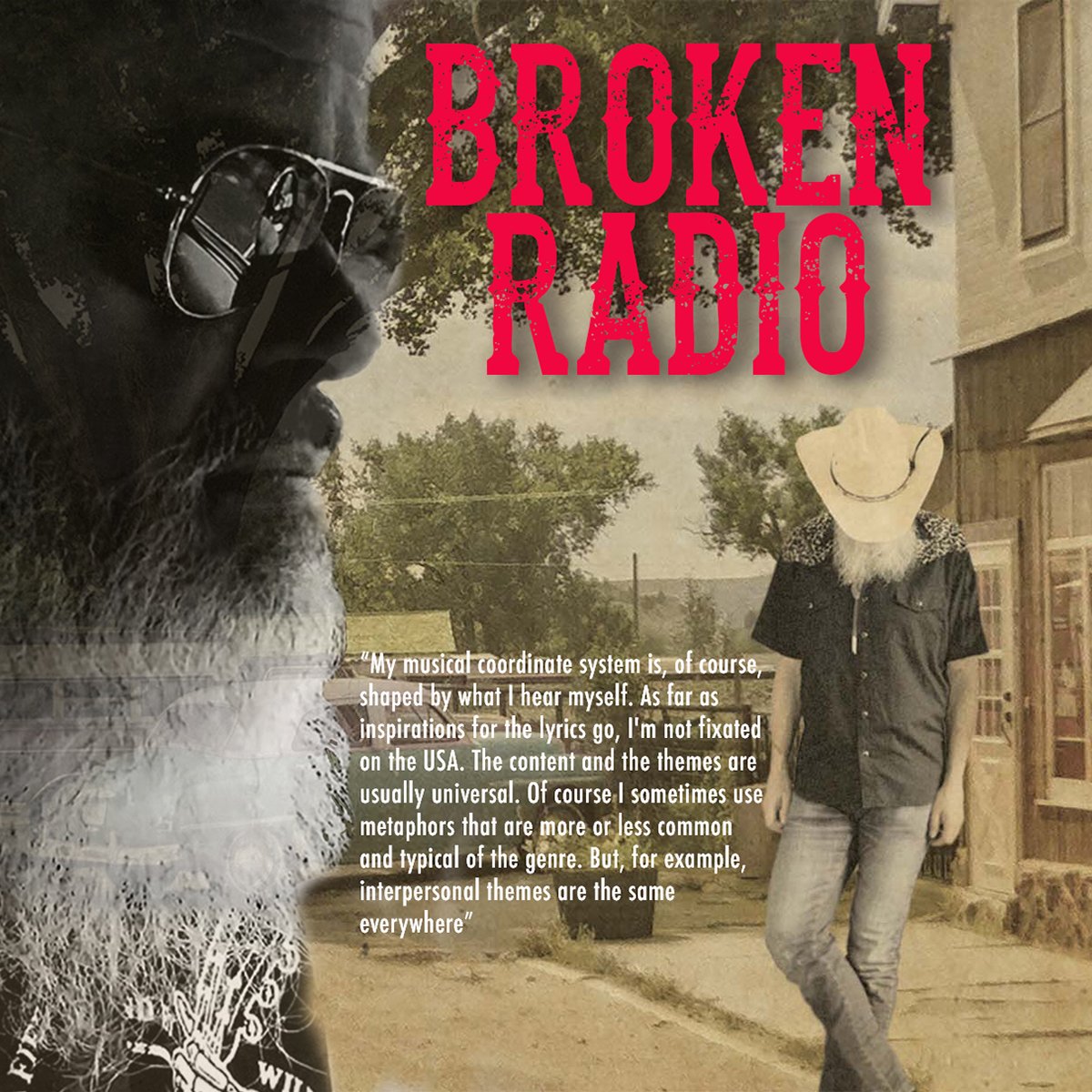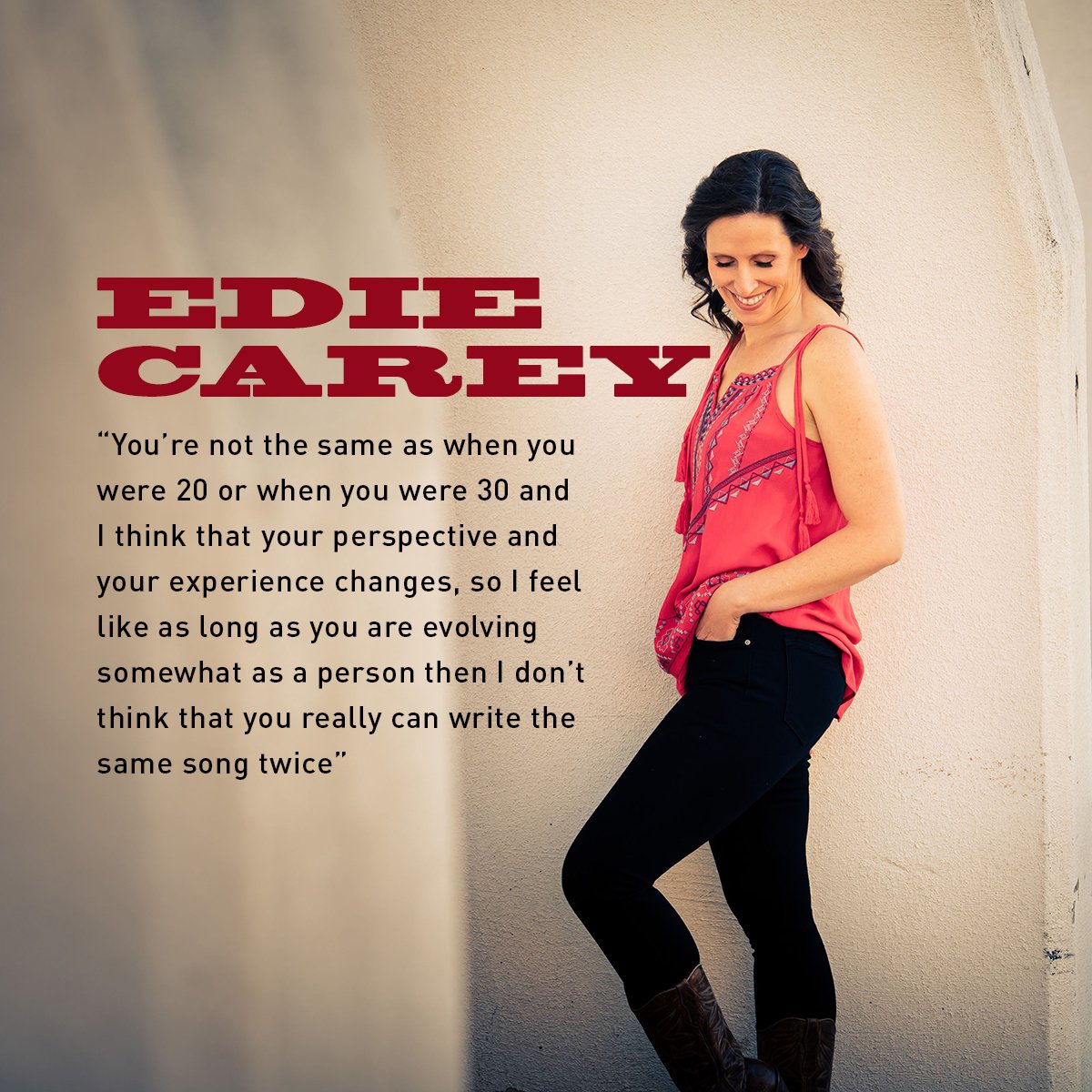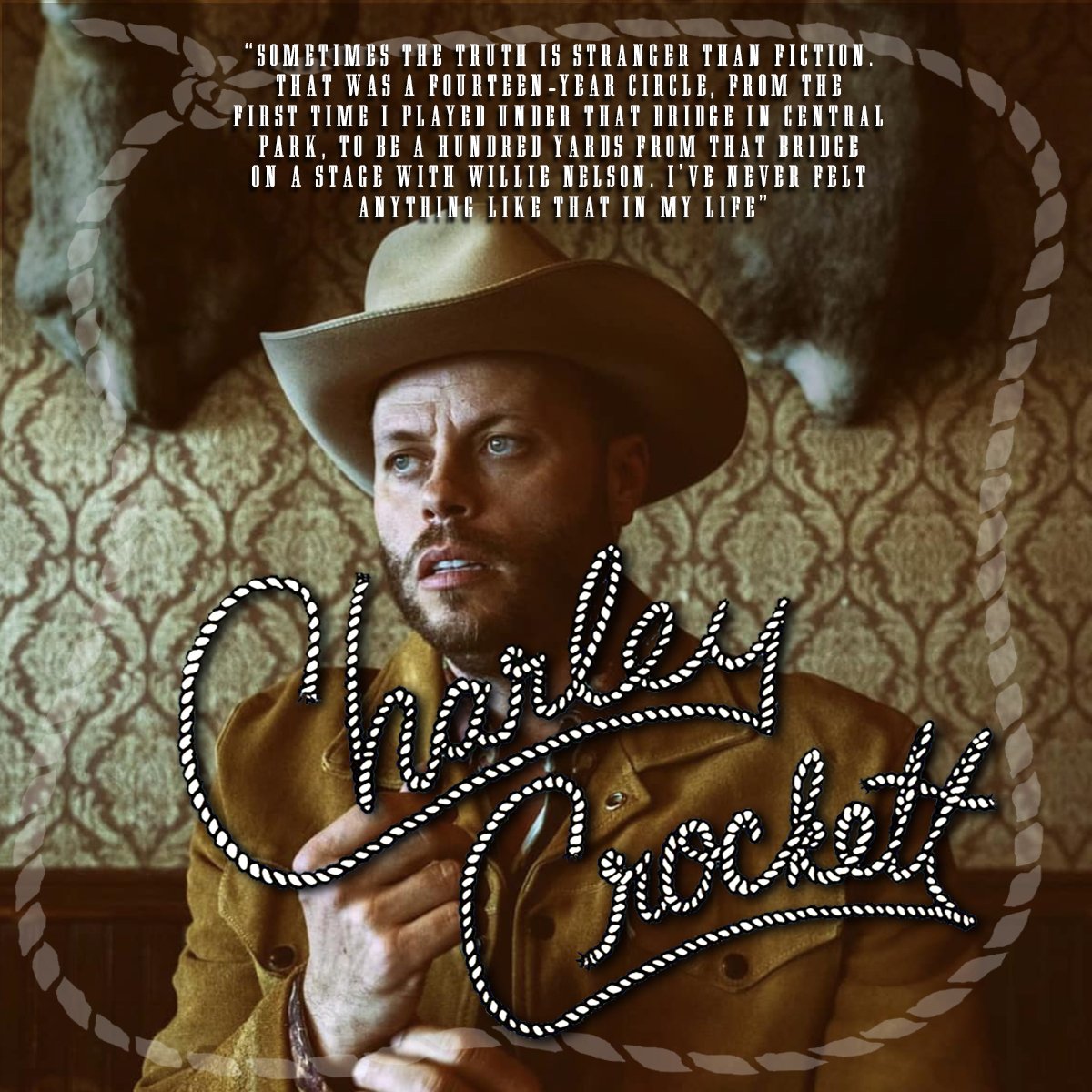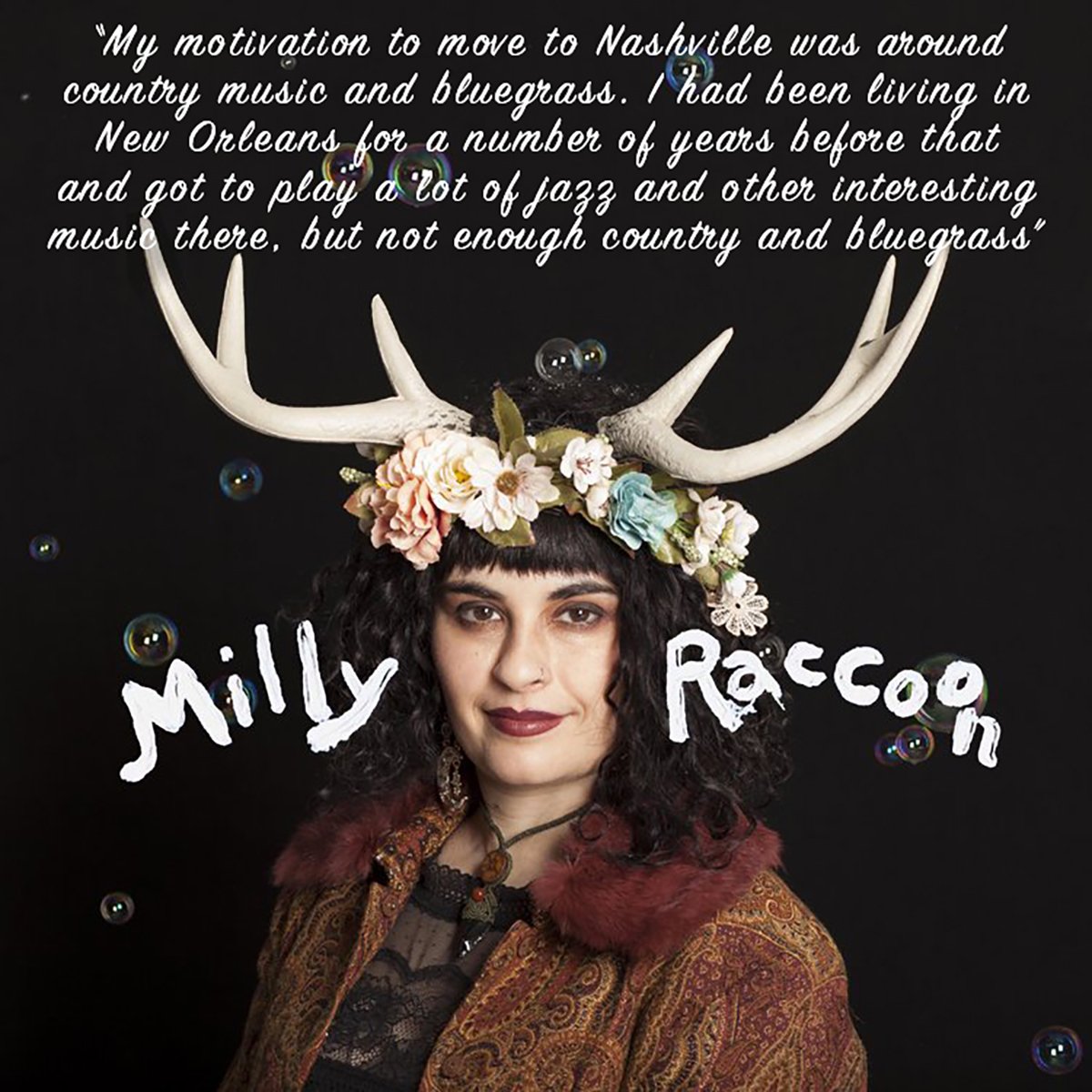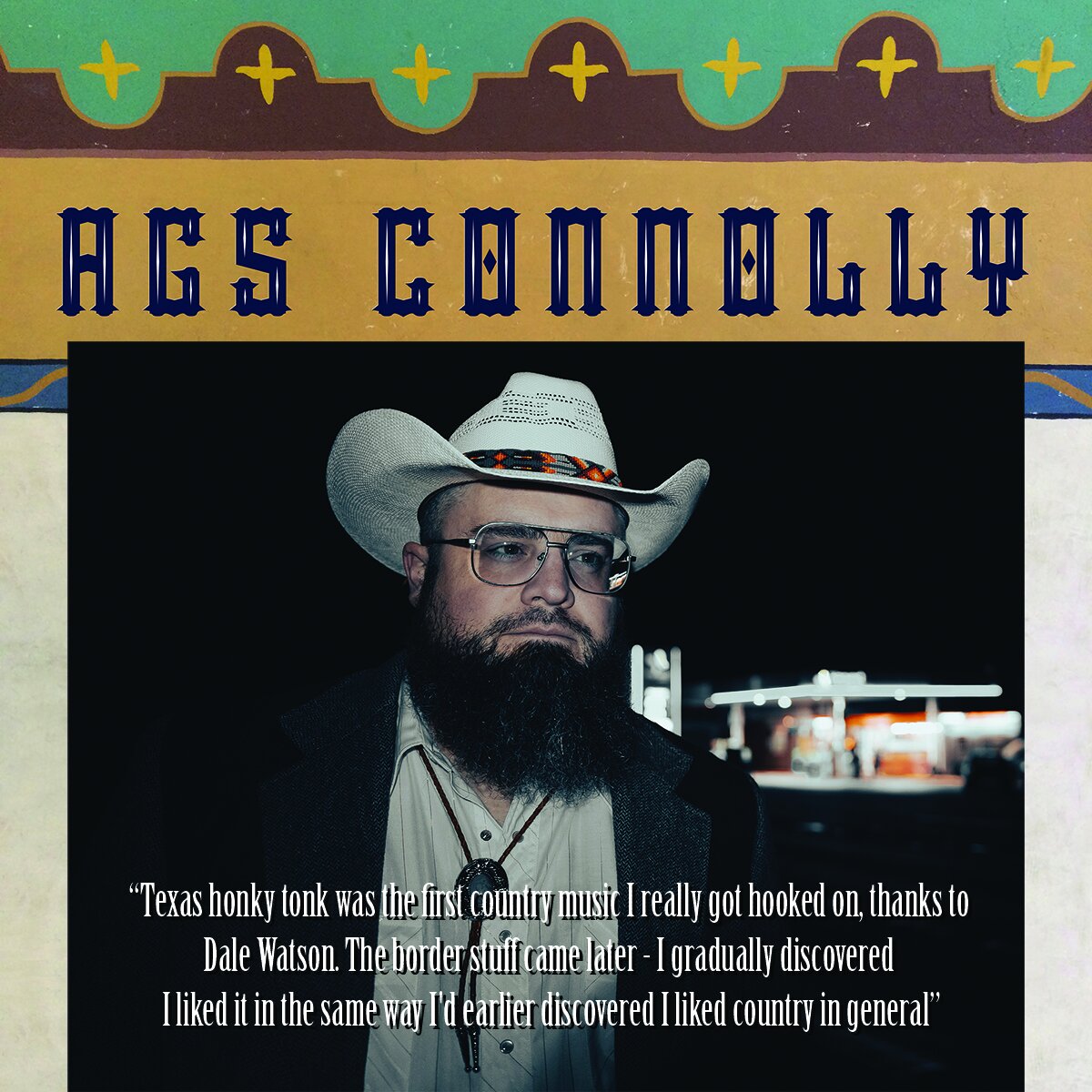Establishing yourself in the over-crowded singer songwriter genre is no easy task and demands - alongside no end of talent - forbearance and good fortune. Josh Gray’s recent album, WALK ALONE, explores a broad canvass of issues alongside personalised plights. In a recent interview with Josh, we learned of his somewhat late entry to his professional career, his move to Nashville to follow his career path and his new record.
You were a late starter as a professional musician. Was there any particular inducement for you to go down that career path?
I never saw music as a career path until recently. I've always loved music, but my main focus was writing. I started with a lot of bad poetry, and that eventually became lyrics. My parents got me a guitar when I was around sixteen, and I enjoyed playing without the intent of performing live. What I think made performing a possibility for me was discovering what I would call accessible artists. Artists who convey deep emotion without having a perfectly trained singing voice or being a virtuoso on guitar. It's important to listen and learn from great artists. But it's equally important to find artists you enjoy that make you feel like you could do that too. One final thing that encouraged me was that my favourite songwriter, Leonard Cohen, released his debut album when he was 33.
What was the music scene like in Frederick, MD, before you moved to Nashville?
Frederick was founded in 1745, and you feel that when you see the historic row homes downtown. I miss that small-town feel of walking down the street and seeing friends going about their day. The music scene was small but very welcoming and creative. I attended the open mic at The Frederick Coffee Company for around a year before performing, just enjoying the music and learning. I think it surprised a lot of regulars when I got up and played for the first time. Mainly because they knew me as a listener and never realized I played guitar. Going to open mics early on was essential to me writing albums, and hearing other musicians inspired and pressured me to write new songs instead of playing the same ones week after week.
Nashville is the epicentre for singer-songwriters and musicians at present. How have you integrated into that scene, and have you found it overwhelming at times?
The main reason I moved down here was to surround myself with talented people, challenge myself, and get better. When I first moved to Nashville in 2016, I continued going to open mics. There was one open mic in particular that was my favourite; it was at Café Coco, a 24-hour hangout for local musicians. I met several great songwriters there who I'm still friends with. I think that's what you do: you find your friends and then start playing a bunch of shows together. I feel that I've integrated into the scene well enough. I'm kind of reclusive, like many songwriters, so I could be better at networking. But really, it's a city full of talented people all doing their own thing. There's no room here for big egos; it's true what they say about Nashville; even the mailman is a better guitarist than you.
Did you avoid the 'paying gigs' playing downtown when you first arrived or used that scene for an opportunity to play and generate some income?
When I moved here, I already had a full-time job. Playing hours and hours of cover songs for drunk tourists never interested me. The pay is unpredictable and largely dependent on tips. I always gravitated more to venues in East Nashville, where original music was more appreciated. Nashville is for networking and being near career opportunities. As far as getting paid, it's hard here unless you're a big name, due to the surplus of artists willing to play for free.
Is the title of your new album, WALK ALONE, a statement on the industry, labels, and radio station's lack of support for anything not seen as readily marketable?
The title is a statement on how I've felt within the industry to date. Overall, artists had it a lot easier back in the day. You grow up hearing stories of famous artists being discovered in some small club, that just doesn't happen anymore. It can be argued that now you can reach anyone in the world via the Internet. But we all know that cutting through the clutter of the internet isn't possible without putting money behind your content. Being a good artist is important but less important than your Spotify or Facebook numbers. You're expected to be a great songwriter, musician, expert in social media and marketing, and booking agent, and you also need thousands of dollars to record. I'm not trying to be negative; I'm just saying it's hard out here. I feel that very few chances are taken on artists anymore. I also feel that with proper promotion in the US I could be a lot bigger than I am.
You speak for the multitude and yourself with the album's opener, Radio Stations. Money or Blood is equally forthright. It rages sonically and lyrically against the unscrupulous employer, gun control and the Government. Another song that commercial radio will definitely not play?
I don't think I'm unique when I say that to me music is a form of therapy. With that being said, if I can't speak my mind in my music, then where can I? The more songs of mine that you listen to, the better idea you get of who I am.
When you're writing a song and the thought of commercial viability enters the conversation, it's time to throw that song in the trash. Are you trying to express yourself and advance the art form, or are you trying to impress your shareholders? I've become good friends with several radio DJs over the years. Many of them have the freedom to program their shows based on their own personal taste. But yes, heavily commercial radio will never be a friend of mine. I just don't ever see myself having the money or lyrics vague enough to ever compete in that arena. I have had friends spend more money on radio promotion than they did on recording their actual album.
The quieter moments on the album also work exceptionally well. The closing track, a classic duet with Morgan Connors, Building Paradise, offers hope and simplicity and bookends the album with a sense of positivity. How vital was the track scheduling for you?
Thanks so much; I think track order is extremely important. It's an art that has gone by the wayside in the age of Spotify and releasing singles without albums. I wanted to arrange the songs in a way that displayed the variety of styles on the album. I like the idea of getting a listener's attention by creating peaks and valleys with songs of different tempos. I also think that when vinyl eventually comes out, the shock of going from Cheyenne at the end of Side A to Money or Blood will be really cool. I made it a point to put the song about my daughter She Thinks the World of Me right after Money or Blood where I talk about school shootings. It's my way of saying look, this is personal for me; we need change.
Where did the character on the track, Cheyenne, come from? Fictional or based on real-life individuals?
I always have a bunch of different CDs in my car. At the time of writing the album, most of them were Texas Country but one of them was this compilation of songs produced by Lee Hazlewood. There's a song on there performed by Duane Eddy called The Girl on Death Row. So, I think that was part of the inspiration for sure. The character is fictional but when writing a story song, I try to put myself in that place. I've explored the loneliness of the open road in songs before but that's a kind of lonesome freedom. I wanted to illustrate a story of someone coming to terms with their fate. The drums are the slow shuffle of routine, the reverb is the echo of the cold concrete walls, and the steel is the lonesome cry of hopelessness drifting into the midnight wind.
Tell us about your decision to record at The Bomb Shelter in Nashville. It can boast classic analog recording equipment and has been the studio of choice for many of our favourite artists' recordings in recent years.
When I was looking for a place to record my second album, SONGS OF THE HIGHWAY, I started by listening to modern albums I enjoyed. I put on Hurray for the Riff Raff's Small Town Heroes and loved the sound. Looking in the liner notes, I found the studio was amazingly only ten minutes away. I contacted them and took a little tour with the band before making the decision. The Bomb Shelter feels like home to me, and I think that's extremely important. You want a place that feels comfortable because there's a lot of vulnerability to recording, especially for a vocalist. You need to be around people you trust to have the patience and honesty to get the best performance out of you. Sure, there are a lot of big-name studios with crazy rosters of artists. But when you walk in the door and see their fancy décor many of these places feel sterile and egotistical, like a place where songs go to get all the life polished out of them.
Alongside your regular bandmates, Julio Matos on bass and Jason Munday on drums, you also brought Sean Thompson on board to play guitar and Brett Resnick on pedal steel. What drew you towards those two players?
Sean was recommended by the Bomb Shelter when I told them the sound I was going for. We hadn't met previously, but he came into the studio and killed it. He's a badass guitarist who also writes his own music and plays with Erin Rae, one of my favourite artists in Nashville.
Brett has been on my short list of people I've wanted to record with since probably 2016. For this project, I decided to reach out and everything fell into place. He's an amazing player but even more importantly he listens and plays off the lyrics.
Congratulations on the album's artwork. Album cover design work should be given more attention with the current emphasis on downloads. Who can take the plaudits for the artwork?
Thank you, I'm going to just start by patting myself on the back here a little bit. My family and I are lucky to live near this huge wooded park that we spent a lot of the pandemic exploring. Knowing this area so well I scouted out several good locations. I then contacted Kristin Indorato about doing a photo shoot. It was early in the year and freezing outside; we met up a little after 6 a.m. to catch the sunrise, not to mention she was pregnant. I felt a little bad, but we got some amazing photos. I found Nikhil Dafre on Instagram and loved his design work. I reached out and I don't think he'd ever designed an album before. But that didn't matter to me; I believed in him, and he was up to the challenge. We went back and forth with a ton of layout ideas and fonts. He made everything look pretty and put up with a million messages from me. Design skills are important but without patience, nothing moves forward.
Designing an album is a hell of a lot of work, especially when you're dealing with a lyric booklet. There are a million little details and corrections. I'm thankful to everyone involved.
You teamed up with Continental Record Services in Europe. Is that, for you, as it is for many of your peers, a concentrated effort to target the mainland Europe market?
The partnership with CRS to distribute throughout Europe has been going well. Friends in the Netherlands first brought my music to Europe and I'll always be grateful. When I say in the first song on this album "See I don't have the money to hire a publicist" that's not just a lyric, that's real. So, when I see that more people are listening and buying my music in Europe, I'm going to dedicate more time to Europe. I'm one man but I'm doing the work of five. I'm handling a large chunk of my own marketing so I have to identify where my time is best spent and focus there.
Congratulations on WALK ALONE. It's a great listen, and hopefully, we will have the opportunity to see you perform the songs over here soon.
Thanks so much for the great review and this great interview. Also, thank you to everyone buying, listening, and sharing my music with friends. I don't know all the details of the European tour yet, but one is definitely in the works for next year!
Interview by Declan Culliton

